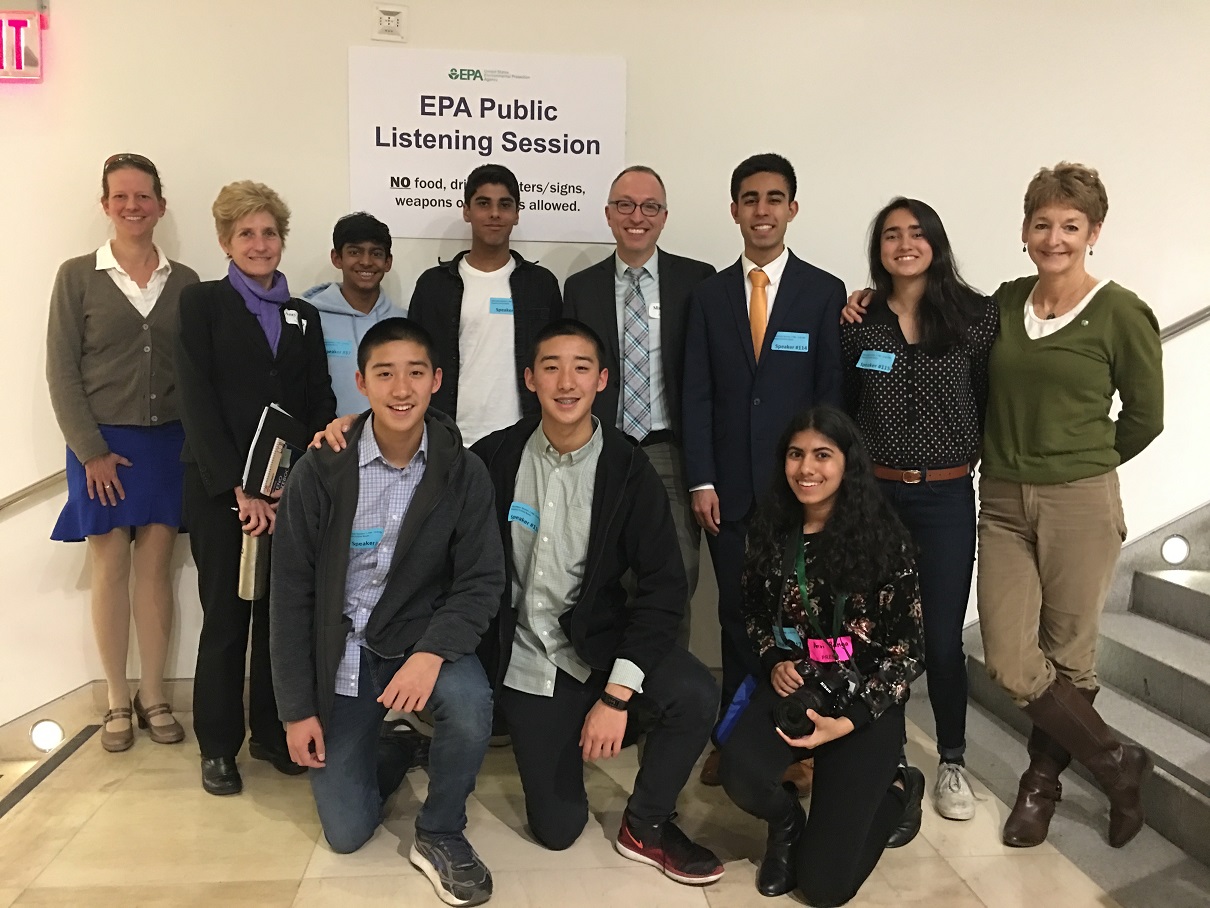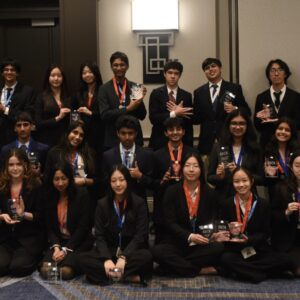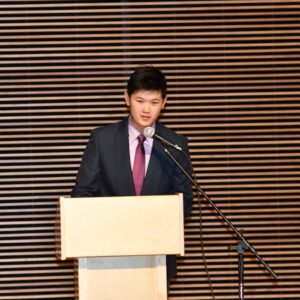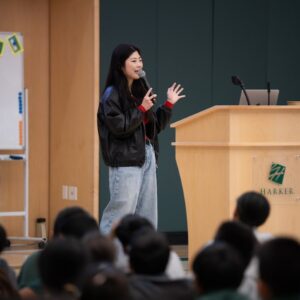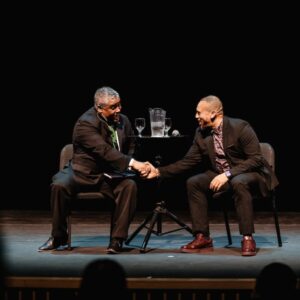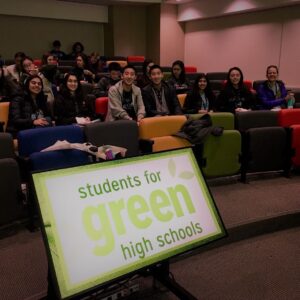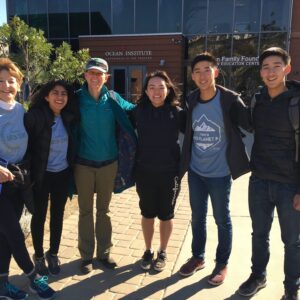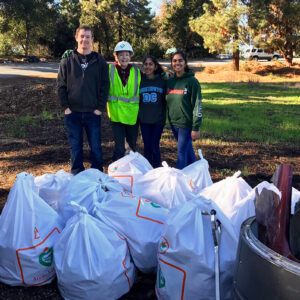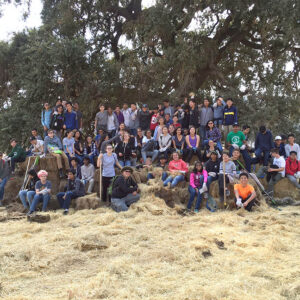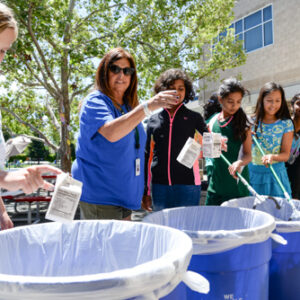On Wednesday, a group of Harker students attended a special listening session held in San Francisco by the U.S. Environmental Protection Agency (EPA) regarding the proposed repeal of the Clean Power Plan. Last year, the EPA under the Trump administration began the process of ending the Obama-era policy meant to combat climate change.
Accompanied by science teacher Kate Schafer and Spanish teacher Diana Moss, members of Harker’s Green committee – senior Satchi Thockchom, sophomores Jai Bahri, Anvi Banga, Avi Gulati, Alex Shing and Anthony Shing, and freshman Akshay Manglik – all voiced their opposition to the repeal. The concerns voiced by the students included declining air quality, higher occurrence of national disasters and a lower quality of life for future generations.
“I think that attending and speaking at events such as these is supremely important,” Manglik said. “Making your voice heard at all levels of government, regardless of its import, is crucial for inculcating civic activism in a very civically apathetic (although that is quickly changing!) American electorate.”
In addition to giving students the opportunity to voice their concerns to government officials, the event also offered them new insight and perspective on climate change. “Not only did this event give students like us, who otherwise have next to no voice when it comes to national affairs, [a chance to speak] … but it also allowed us to hear personal stories of those directly affected by climate change,” said Bahri.
Students also mentioned that learning about climate change and the Clean Power Plan in their classes and activities at Harker helped them craft more powerful statements for the meeting. “In Green Team and AP government, I’ve learned a lot about renewable energy policy, specifically SB 100, a bill that would require CA to source 50 percent of its energy from renewables by 2030,” Thockchom said. “Because of my engagement with this bill, I could include it in my argument that there are growing factions between federal and state law.”
Despite their busy schedules, regional EPA officials spent time talking to the students. “Directly after the last piece of testimony was given, two of the three EPA listeners came up to us and congratulated us on our speeches,” said Bahri. “To know that what we said actually struck and impacted these people, who had heard hundreds of other pieces of testimony, was an amazing feeling.”
